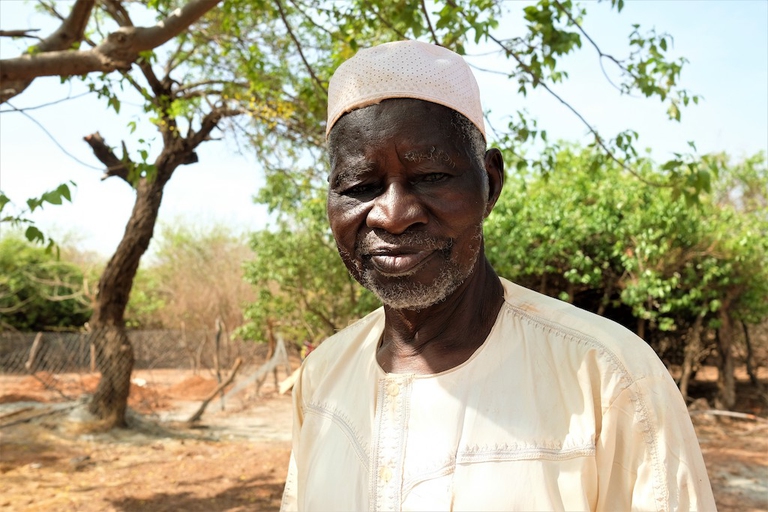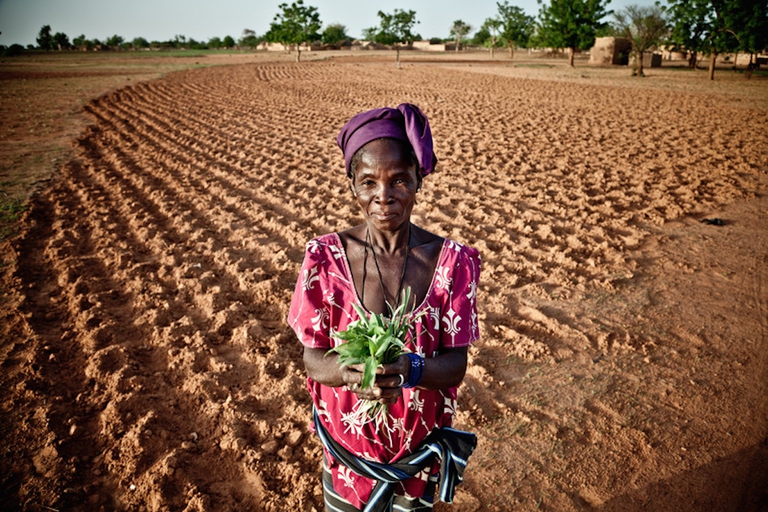
Basta una manciata di plastica nello stomaco di un uccello per capire l’immensità del problema della plastica. E risvegliare le nostre coscienze. L’intervista al fotografo Chris Jordan, autore del documentario Albatross.
Reforestation and soil conservation. This is how Yacouba Sawadogo, a simple farmer, and his family solved the desertification crisis in his village.
Yacouba Sawadogo, a farmer from Burkina Faso, stopped desertification in his village by working together with his family to plant trees which have now grown into a vast forest. This in response to a long dry spell that, coupled with over-farming, over-grazing and over-population was plaguing the northern part of the country. Initially, farmers in his community ridiculed him and thought he was going mad.
With no access to modern tools and lack of education, he started using an ancient African farming practice called zai, which leads to forest growth and improved soil quality. Gradually, the barren land was transformed into a forty-hectare forest containing over 96 tree and 66 plant species, many of which edible and medicinal, as well as a number of animals.
“Thomas Sankara (who was President of Burkina Faso between 1983 and 1987, editor’s note) launched an appeal to develop initiatives to stop the advancement of the desert – Sawadogo recounts – and when he came to see my work, he asked me what technique I was using and I told him it was zai. That’s why I’m also known as Yacoub Zai”.
After embarking on such ground-breaking work in the semi-arid African desert, Sawadogo was featured in a 2010 documentary, The Man Who Stopped the Desert, becoming famous around the world. In addition, he was conferred the Right Livelihood Award, widely known as the “alternative Nobel Prize” in 2018, “for turning barren land into forest and demonstrating how farmers can regenerate their soil with innovative use of indigenous and local knowledge”.
The technique he utilises, zai, has also spread to neighbouring Mali, and he teaches it to the many people who come to learn from him. “I want to design a training programme that will be the starting point for many fruitful exchanges across the region and there are so many farmers from neighbouring villages that visit me for advice on good quality seeds to plant,” Sawadogo says. “I’ve chosen not to keep my farming methods as secrets to myself”.
Even the Centre on International Cooperation (CIC), a foreign policy think tank based in New York University, proposes to encourage millions of Western Africa famers to invest in trees. This will help them improve their food security and in climate change adaptation, according to natural resources management specialist Chris Reji.
Today, Sawadogo is facing serious problems from several quarters. Northern Burkina Faso has become increasingly volatile due to incursions by jihadist groups and inter-communal conflict, which have brought insurgent attacks and social unrest. An expansion project in the area has taken up a considerable portion of the forest he spent years growing: homes have been built on his land, with little compensation being offered. In addition, the entire family is on guard to protect the area from people wanting to steal wood.
However, the farmer’s message about the future of the environment and conservation remains profound. “If you cut down ten trees a day and fail to plant even one a year, we’re headed for destruction”.
Siamo anche su WhatsApp. Segui il canale ufficiale LifeGate per restare aggiornata, aggiornato sulle ultime notizie e sulle nostre attività.
![]()
Quest'opera è distribuita con Licenza Creative Commons Attribuzione - Non commerciale - Non opere derivate 4.0 Internazionale.
Basta una manciata di plastica nello stomaco di un uccello per capire l’immensità del problema della plastica. E risvegliare le nostre coscienze. L’intervista al fotografo Chris Jordan, autore del documentario Albatross.
Four months have passed since the beginning of 2017 and, for many, that means that their New Year’s resolutions are still in mind. The gym is still crowded, your refrigerator is still full of healthy food, but that initial motivation may not be as high as it was on, say, on the 2nd of January. So
An inconvenient sequel: truth to power è il nuovo documentario di Al Gore dopo Una scomoda verità. Il trailer ufficiale è finalmente disponibile.
For 33 years the Late Show was the US television channel CBS’ goodnight to its viewers and its host David Letterman was one of the most innovative and unpredictable broadcasters in the country. Now he faces a new challenge that the producers of the National Geographic show Years of Living Dangerously, Joel Bach and David Gelber, asked him to take
A true mix between hip hop and science: this is the “Rap guide to climate chaos”. A musical explaining the risks of climate change also performed at Cop 21.
Once again Thom Yorke, lead singer of the band Radiohead, actively took part in initiatives aimed to raise awareness on the issue of climate change in occasion of Paris COP21, the 21st global conference on climate. RT if you stand with @thomyorke for tough action on climate change at #COP21 (it’s fake snow) #ClimateMarch pic.twitter.com/FqcosRUrCe —
Massive Attack’s founder Robert “3D” Del Naja realeased the soundtrack to the short film entitled La Fête est Finie (The party is over) with hip hop group Young Fathers and producer Forest Swords. The film will be premiered at Le Trianon theatre in Paris, where the negotiations on climate change are currently taking place, ahead of concerts by Thom Yorke,
Earlier in 2015, the Canadian writer and journalist Naomi Klein has published a book that became a manifesto on climate change and capitalism, entitled This Changes Everything. She starts with the basic assumption that without a radical change in the way world population lives, produces and manages its economic activities, there is no way to avoid environmental destruction.
A few days before the beginning of COP21, the conference on climate to take place in Paris from 30 November, more than 300 artists and leading personalities in the international creative industry signed an open letter addressed to the French Ministry of Foreign Affairs and President of COP21 as well as to the UNFCCC (United Nation framework









